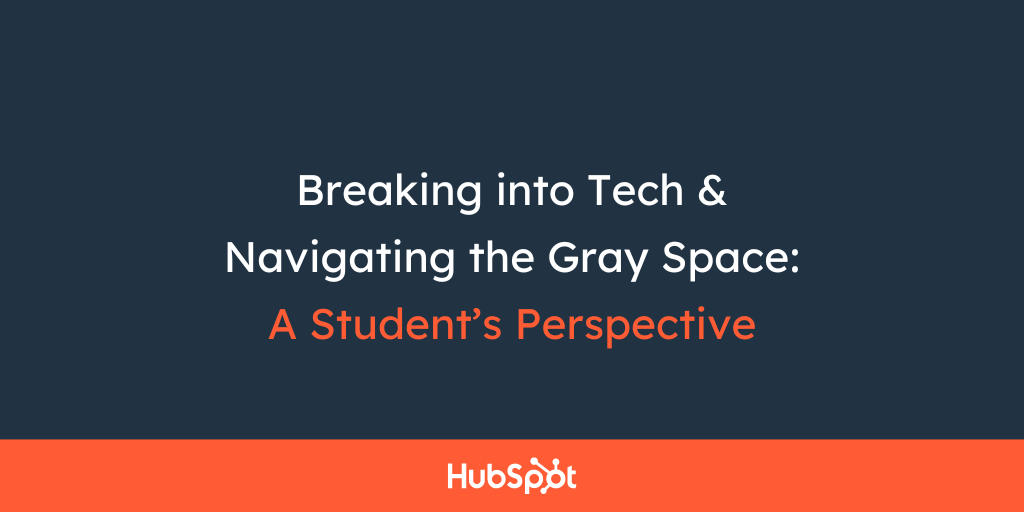

A recent Jobvite study found that 77% of recruiting activities (unsurprisingly) happen on LinkedIn. So about two years ago, I added a line to my own LinkedIn profile saying, “We’re hiring, DM me!” in support of our Employer Branding efforts at HubSpot. To this day, I receive a steady stream of job referral requests on LinkedIn.
While I should be happy about this -- full transparency, there is a financial incentive for each successful referral at HubSpot -- my own experience and observation is that job seekers aren’t setting themselves up for success when asking for referrals on LinkedIn. In this post, I’ll break down the top 3 mistakes I encounter time and time again from candidates, and portions of the actual messages I received to help clarify the dos and don’ts of asking for a job referral. While these examples are specific to HubSpot, the learning can be applied for anyone reaching out to a LinkedIn connection about a potential job opportunity.
Mistake #1: Spraying and Praying
Similar to sales, spraying and praying isn’t going to get you anywhere when it comes to "cold messaging" a LinkedIn connection. These referral mistakes are characterized by generic and one-sided messages sent to various companies and people hoping someone, somewhere, will find the jobseeker’s profile relevant. Below are a few examples of these types of spray and pray messages to avoid when reaching out for a job opportunity.
Example #1
Hi
Hope you are doing well.
I am working as Group Head - SEM at a Media Company - and I'm looking for job opportunity in Singapore. My total work experience in SEM is more than 6 years. If you find my profile suitable for a job in your organisation or somewhere else, please let me know.
Example #2
Dear Maribel, (yes, they actually spelled my name wrong)
I am currently looking for a job and can join immediately. Worked extensively on Business Mobility. I have 15 years of enterprise sales and team management experience.
I would be glad to share my resume with you. Awaiting your reply. Request you to please help me.
________
These job seekers may have real experience under their belt, but by using this spray and pray approach when reaching out, it painfully highlights one thing: not caring. There’s almost no effort put into researching who they’re reaching out to or how they can add value to the organization.
Here’s another variation of spray and pray where “Customer Success Managers” and “HubSpot” can easily be interchanged with any other role or company:
Example #3
Hi Mariel, I hope you're doing great. I saw that Hubspot is growing and hiring more Customer Success Managers. I am interested to learn, contribute and grow with Hubspot. Can you please connect me with someone who can be of help for me. I am looking forward to receiving a prompt and positive response from you.
(Also note the misspelling of HubSpot throughout multiple examples throughout this post. Make sure you’re spelling the company you hope to work for correctly -- capitalization and all.)
_______
If you’re really serious about getting that referral, spend some time learning about the person you’re intending to reach out to - their current and previous roles, how their team fits into the overall organization, read their latest LinkedIn posts or their recent activities. I know these all sound a little bit stalkerish, but this isn’t very different from how you would normally (or should -- another little tip) prepare for meetings, or utilize researching and reading customer reviews prior to a substantial purchase of a product or software.
Finally, always start the conversation by asking about the person you’re hoping to connect with - what made you reach out to them specifically? What is it you’re hoping to learn from them and what exactly can you provide in return? We have a saying in HubSpot: always provide value before extracting value.
Mistake #2: Not Knowing What Roles are Currently Available
This is job hunting 101 and I’m always puzzled when I receive messages asking if there are open roles at HubSpot:
Example #4
Hi Mariel. I'm currently a technical writer. I've used Hubspot and I know how wonderful the product is. Kindly let me know, if there are any vacancies for writing at Hubspot. (Misspelled HubSpot twice here...)
_______
Here’s another example and though there’s more text, still misses the mark:
Example #5
Hi Mariel,
Hope you are doing well! :)
I’m interested in the HR positions at Hubspot. But before I blow you away with all the reasons on why I should be the next HR @Hubspot, I would like to tell you a little about myself: after having spent close to 5 years in building startups, I could hire a dozen people even in my sleep!
What do I want to do next? Put that experience to work with the next biggest company and add another wonderful story to my career. I head the HR team and having trained a team under me for a few years, I feel I can add a lot of expertise to the wonderful HR team at HubSpot. Do let me know if there are any interesting roles. Looking forward to hearing from you!
_______
Again, if you are serious about getting that referral, it’s your responsibility to find out what roles are currently available, match it with your experience and map it to your professional growth goals.
Unsure if your experience is entirely transferable? Start by listing your relevant skills and experience and then a second list for those required by the role that you may not have yet. For the items on the second list, you can make an educated guess if these can be learned on the job or perhaps the company may even provide training.
Still unsure? These are valid questions you can ask the person you’re asking for a referral from as well. How did they navigate ramping into their current role? What did they need to learn formally and on the fly?
Assuming you’ve done your homework and found no relevant roles, it still pays to reach out and be considered as a passive candidate instead.
Mistake #3: Not Having a Clear Call-to-Action
At HubSpot, we coach our customers and new hires to understand that getting your content found online is only step one. Whether it’s a blog, social media post, or an email, it needs an effective “call-to-action” (CTA) to generate results. Simply put, what should your audience do after consuming or interacting with a piece of content? Do they “Learn More”, “Sign-up now”, “Buy Now”?
The same rules apply when asking for job referrals. Let’s take a look at this example:
Example #6
Hi Mariel, Hope you doing well! Allow me 2 minutes to introduce myself. I'm a customer success professional with over 9-years experience. Over these years, I've been able to plan & implement various strategies that resulted to increase in conversions and leads of various clients. This was achieved due to my dedicated account based planning & introducing innovative ideas to increase the usage of SaaS-based solutions among brands that result in higher customer engagement & ROI.
I've also worked closely with brands to integrate & automate their customer lifecycle based communications. It resulted in being part of multiple team & individual level accolades, the most recent being awarded as Best Customer Success, International - FY'18-19 at my company.I'm currently exploring newer opportunities & I'm hopeful I can take your help at HubSpot. Look forward to hearing back from you.
_______
While we can deduce that the help they need is a job referral, the CTA is vague and you’re unlikely to elicit a response from your recipient. The best way to ask is to ask directly. I know that may feel awkward and intimidating at first, but if you’ve done your homework (see Mistakes #1 and #2) properly, you would’ve set yourself up for success by establishing a genuine connection with the person you’re asking the referral from -- chances are, they might even ask if you’d like to be referred.
Now before I leave you to go do your homework on that next company you want to work -- before reaching out to that LinkedIn connection -- I want to set a few expectations about job referrals. There seems to be this perception that getting a referral means getting special treatment from Recruiters. This isn’t necessarily the case. While getting a referral demonstrates your high intent and interest for the role, you will still go through the same screening process as other candidates who have applied through other channels. However, your advantage (again, if you did your homework right) are added insights to the role, the team and the company you’re hoping to join next which should hopefully give you a bit of an edge over the competition. Good luck!


.png)






